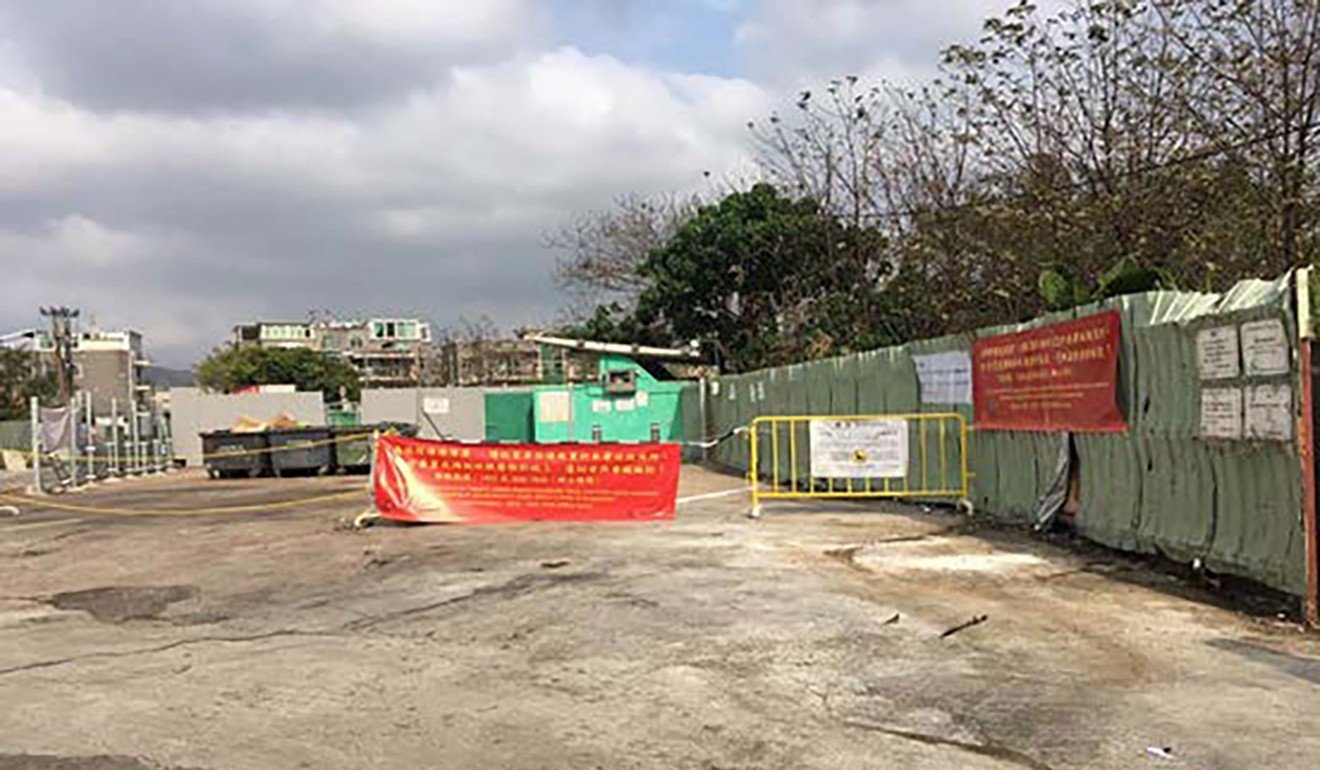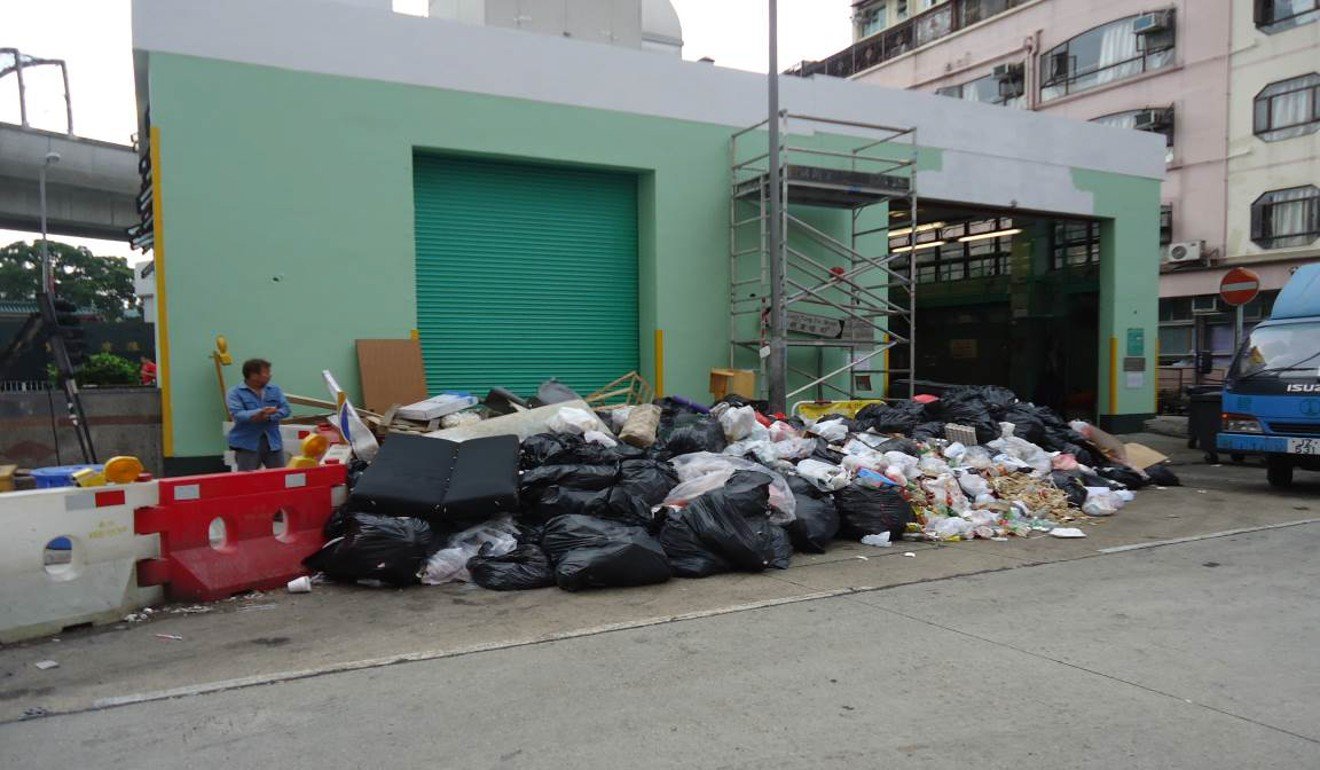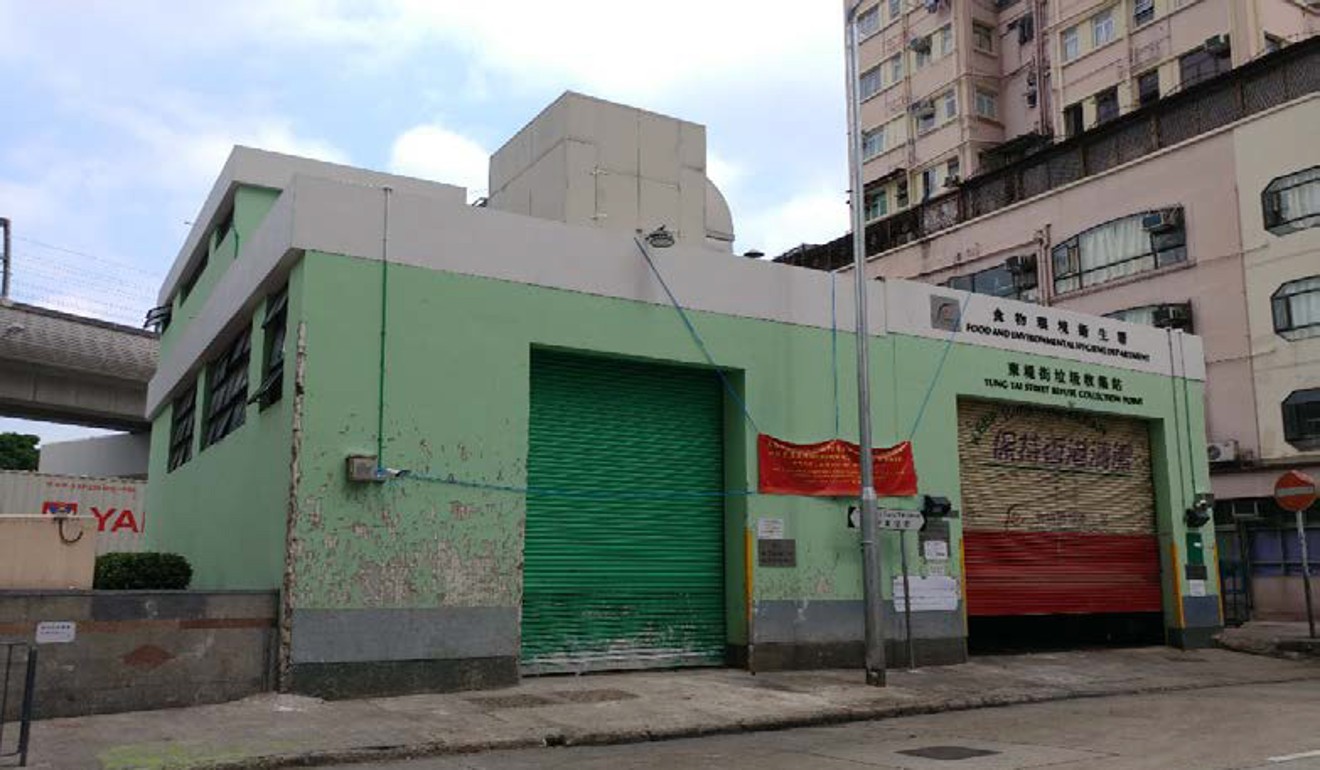
Hong Kong plans more cameras at illegal dumping hotspots following success of HK$1.2 million pilot scheme
Trial ran from December 2016 to June and saw improved hygiene conditions at all six locations involved
Hong Kong hygiene authorities are proposing to install surveillance cameras at illegal dumping black spots in all 18 districts in the city, extending a successful six-month pilot scheme.
The Food and Environmental Hygiene Department said the cameras had proven their “deterrent effect” and helped improve hygiene conditions at the six black spots in the original trial.
Unlike analogue closed-circuit television (CCTV) cameras, the IP cameras used in the trial can send live data over the web.

The HK$1.2 million pilot scheme ran for six months, from December last year to June this year. IP cameras were deployed at two refuse deposit black spots each in Central and Western, Sham Shui Po and Yuen Long districts.
In the paper, the department included before and after photographs of four black spots: Shing Wong Street in Central and refuse collection points on Cheung Wah Street in Cheung Sha Wan, Tung Tai Street in Yuen Long and Pak Sha Tsuen in Shap Pat Heung. The images showed the black spots free of fly-tipped rubbish since the scheme began.
“The amount of refuse illegally deposited at the black spots and the number of complaints received have dropped significantly after the installation of the IP cameras,” the department added.
How big data and covert surveillance are helping tackle Hong Kong’s problem of illegal dumping
A truck owner was fined HK$3,500 by Fanling Court in March after being caught on the Pak Sha Tsuen camera illegally dumping waste from his vehicle.
While privacy had been a concern during the roll-out of the pilot programme, the department said only one public inquiry was received in April about the legal basis of the IP camera on Cheung Wah Street, questioning whether capturing such images infringed on the privacy of passers-by.
The department said it attached great importance to personal privacy and had solicited views from the Department of Justice and followed all guidelines on “CCTV surveillance and use of drones” issued by the Office of the Privacy Commissioner in rolling out the scheme.
“Clear operational guidelines have been promulgated for strict compliance by staff. Measures have been taken to ensure all footage recorded would be kept in safe custody.”

The department said it would not rule out the possibility of terminating the IP camera scheme when it had “effectively brought about change to the habit of illegal dumping”.
Central and Western district councillor Yeung Hok-ming, who chairs the council’s food, environment, hygiene and works committee, said the scheme had improved hygiene at the two trial locations in his district.
“Shops no longer dump their rubbish as they used to on the street at night time and are now forced to hire contractors for disposal service,” he said.
But Yeung was disappointed that his district would again get only two cameras as part of the extended scheme, despite there being more than 20 black spots.

Joanne Lee Yuen-ting, executive director of the Federation of Environmental and Hygiene Services, welcomed the move but said cameras would not completely solve the problem.
“It helps, but the black spots will just move somewhere else,” she said. “People will also just dump rubbish near bins and claim there will be a contractor coming soon to pick them up. It will be impossible to have cameras everywhere.”
Lawmakers on the legislature’s food safety and environmental hygiene panel are to discuss the subject on Tuesday.
The fixed penalty for littering in a public place is HK$1,500, but offenders can be liable for a maximum fine of HK$25,000 and six months in prison.

